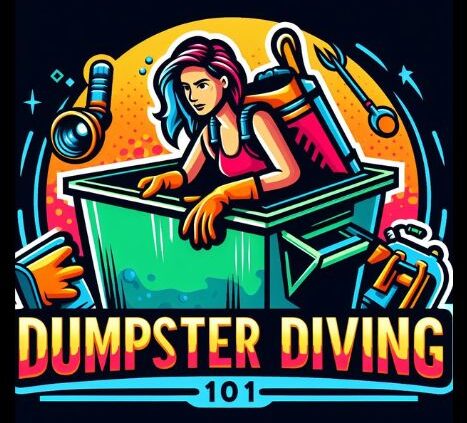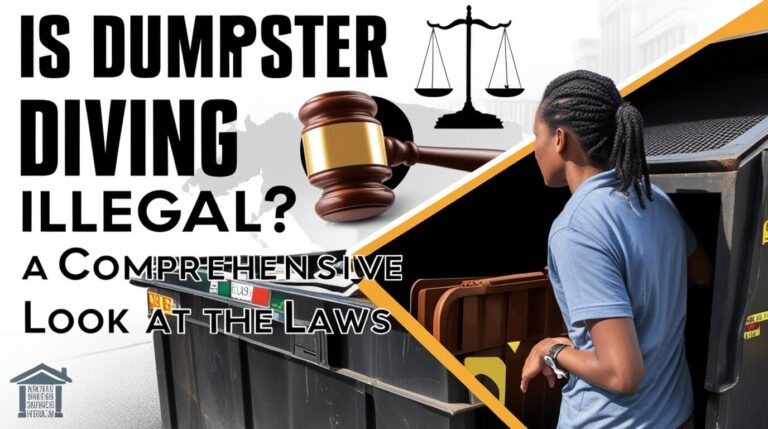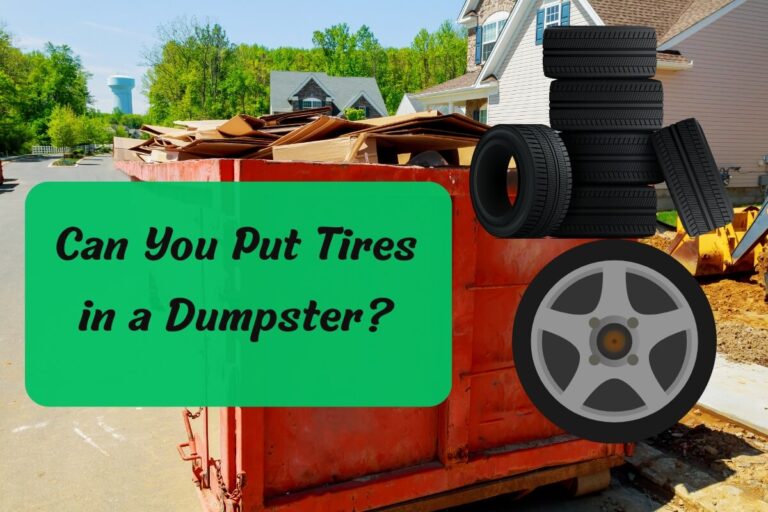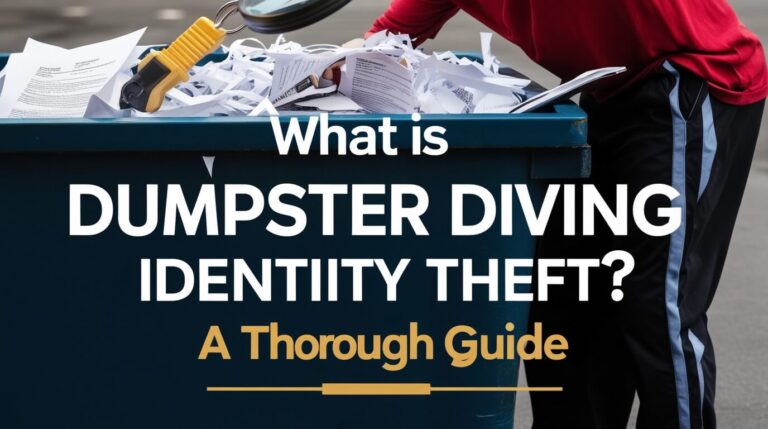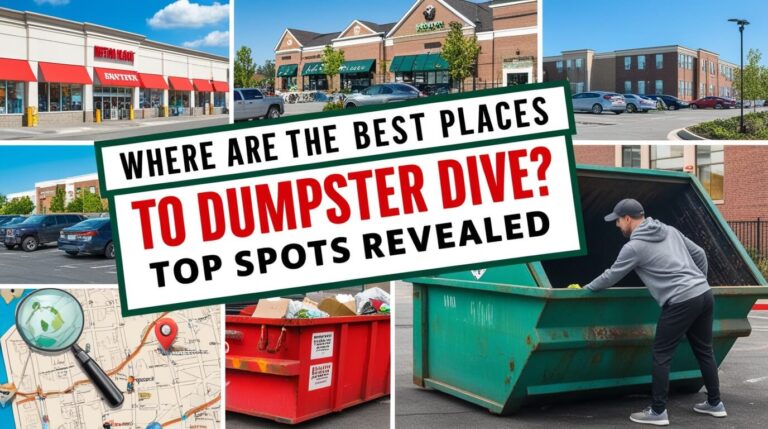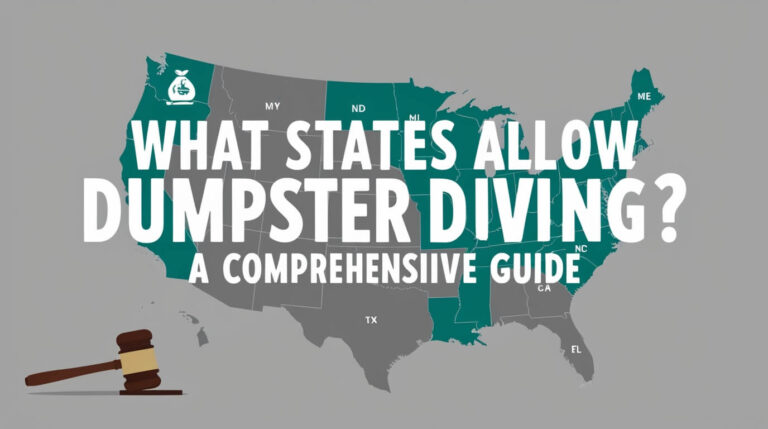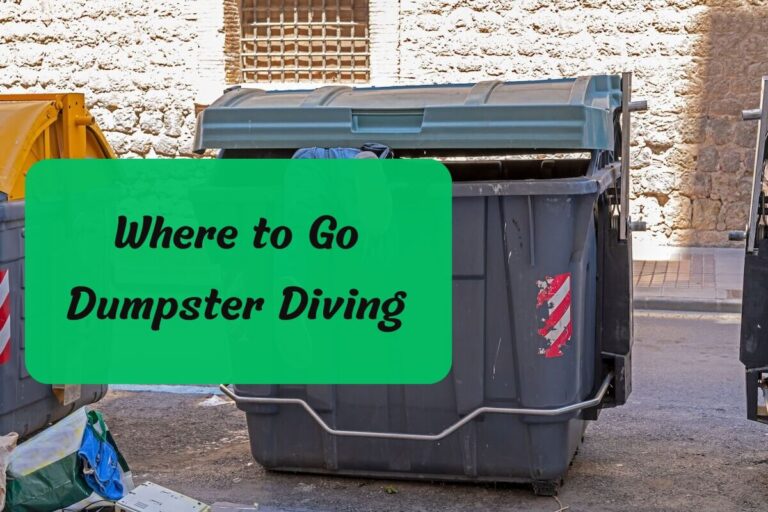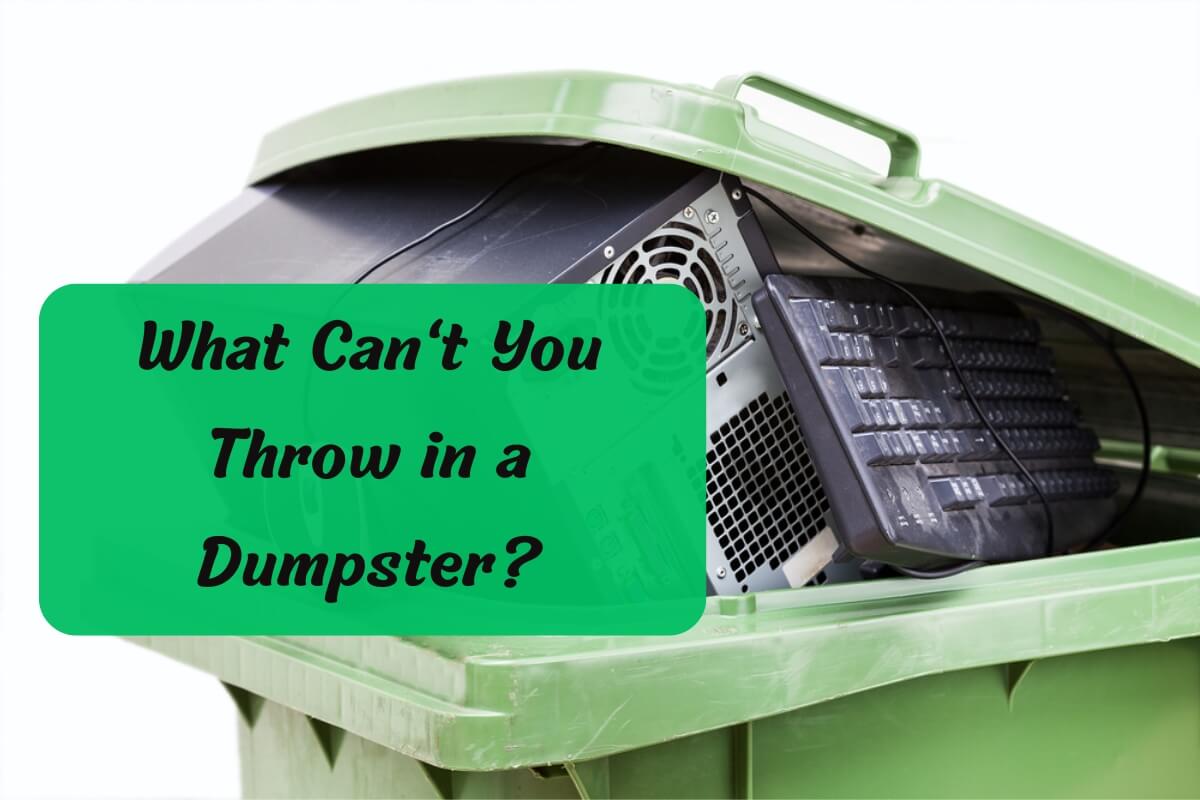
Proper waste disposal safeguards our environment and ensures safety. With numerous items and materials in our daily lives, determining what can or cannot be tossed into a dumpster can be confusing. This guide explains items prohibited from being thrown into dumpsters and the reasons behind these restrictions.
So, what can’t you throw in a dumpster? The short answer is anything hazardous, toxic, or potentially dangerous to the environment or waste workers. This includes materials like chemicals, electronics, and certain types of debris. But don’t worry, we’ll cover all the specifics in detail throughout this article.
Hazardous Materials – The Biggest No-No
When it comes to dumpster disposal, hazardous materials are an absolute no-go. These items can pose severe risks to both the environment and human health if not handled and disposed of properly.
Some common examples of hazardous materials that should never find their way into a dumpster include:
- Gasoline, oil, and other automotive fluids: These highly flammable and toxic liquids can contaminate soil and water sources if leaked or improperly disposed of.
- Paint thinners and solvents: Many of these substances are corrosive and can release harmful fumes, making them extremely hazardous for dumpster disposal.
- Household cleaners and chemicals: From bleach to pesticides, these products often contain toxic ingredients that can cause environmental damage if not properly contained and disposed of through appropriate channels.
- Asbestos and contaminated materials: Due to their cancer-causing properties, asbestos and materials contaminated with it require specialized handling and disposal methods.
Disposing of hazardous materials improperly can lead to severe consequences, including hefty fines, legal troubles, and irreversible environmental damage. It’s simply not worth the risk.
Electronics and Appliances Need Special Handling
In our modern, technology-driven world, it’s no surprise that electronic waste (e-waste) is a growing concern. That’s why most dumpster rental companies prohibit the disposal of electronics and certain appliances in their containers.
Items that typically cannot be thrown into a dumpster include:
- Televisions and computer monitors: These devices often contain lead, mercury, and other hazardous materials that can leach into the environment if not properly recycled.
- Phones, computers, and other electronic devices: From phones to printers, these items contain various toxic components that require special handling and recycling processes.
- Refrigerators and air conditioners: Older models of these appliances may contain Freon gas, which can be harmful to the ozone layer if released improperly.
- Batteries of all kinds: From AA batteries to car batteries, these items can leak corrosive and toxic materials if not recycled through designated facilities.
The good news is that many communities offer e-waste recycling programs or special collection events to ensure these items are disposed of responsibly. Check with your local waste management authority for more information.
Other Banned Items That May Surprise You
While hazardous materials and electronics are the obvious culprits, there are a few other items that may surprise you as being prohibited from dumpster disposal:
- Tires: Due to their bulky nature and potential to damage dumpster liners, most rental companies prohibit the disposal of tires in their containers. Many tire retailers and auto shops offer tire recycling programs as an alternative.
- Mattresses and upholstered furniture: These items can be difficult to compact and may contain materials that are not easily biodegradable. Some areas require special handling or disposal fees for these items.
- Yard waste and organic materials: Yard waste like grass clippings, leaves, and branches shouldn’t go in dumpsters. Instead, compost them or use designated yard waste collection programs.
- Construction/demolition debris in large quantities: Smaller construction projects may be okay, but larger ones with lots of materials like drywall, concrete, or lumber need special dumpsters or disposal.
It’s always a good idea to check with your local waste management authority and dumpster rental company to understand their specific policies and restrictions.
Penalties and Risks of Improper Dumping
Ignoring dumpster disposal restrictions can lead to some serious consequences, both for you and the environment.
Potential penalties for improper dumping may include:
- Fines: Depending on the severity of the violation, fines for illegal dumping can range from a few hundred dollars to thousands, or even jail time in extreme cases.
- Cleanup costs: If hazardous materials are improperly disposed of, you may be responsible for the costly cleanup and remediation efforts required to protect the environment and public health.
- Legal troubles: In some cases, improper disposal of certain materials like asbestos or electronics can result in legal action being taken against the offender.
Beyond the financial and legal penalties, improper dumping can also pose significant risks to the environment and waste workers’ safety. Toxic materials can contaminate soil and water sources, while sharp or heavy objects can cause injuries during the collection and sorting processes.
How to Properly Dispose of Restricted Items
So, if you can’t throw these items in a dumpster, how do you get rid of them? Here are some tips for properly disposing of restricted materials:
- Contact your local waste management authority: They can provide guidance on proper disposal methods for hazardous materials, electronics, and other restricted items in your area.
- Utilize hazardous waste facilities: Many communities offer special collection events or designated facilities for safely disposing of household hazardous waste like chemicals, paints, and automotive fluids.
- Recycle electronics and appliances: Check with your local recycling center or electronics retailer about e-waste recycling programs or trade-in options for old devices and appliances.
- Consider donation options: For gently used items like furniture or appliances, consider donating them to local charities or organizations that can repurpose or resell them.
Proper disposal is responsible and helps protect our environment and communities.
Expert Tips on Dumpster Dos and Don’ts
To wrap things up, here are some expert tips to keep in mind when renting a dumpster and disposing of waste materials:
- Do check your rental company’s policies: Different companies may have varying restrictions on what can and cannot be placed in their dumpsters. Always review their guidelines to avoid any potential issues or additional fees.
- Don’t throw everything in together: Sort and separate materials properly to ensure hazardous items don’t contaminate or damage other waste.
- Do ask for guidance: If you’re ever unsure about whether an item can be disposed of in a dumpster, don’t hesitate to ask your rental company or local waste management authority for clarification.
- Don’t overfill the dumpster: Not only is this a safety hazard, but it can also lead to materials spilling out and potentially causing environmental contamination.
- Do consider alternative disposal options: For items that cannot go in a dumpster, explore recycling programs, donation centers, or specialized disposal facilities in your area.
By following these tips and being mindful of what can’t be thrown in a dumpster, you’ll not only avoid potential fines and legal troubles but also play your part in protecting our environment for generations to come.
Conclusion
In this comprehensive guide, we’ve covered the various items that are strictly prohibited from being disposed of in dumpsters, including hazardous materials, electronics, certain types of debris, and more. While the specific restrictions may vary depending on your location and rental company policies, the general rule of thumb is to avoid throwing anything toxic, flammable, or potentially harmful to the environment or waste workers into a dumpster.
Proper waste disposal is not only a legal requirement but also a ethical responsibility we all share. By taking the time to understand what can’t be thrown in a dumpster and exploring alternative disposal options for restricted materials, we can help minimize environmental contamination, protect public health, and promote a more sustainable future.
If you have any further questions or concerns about dumpster rental and waste disposal, don’t hesitate to reach out to your local waste management authority or rental company. They’ll be able to provide you with the most up-to-date information and guidance specific to your area.
Remember, small actions can make a big difference, and responsible waste disposal is one of the simplest yet most impactful ways we can all contribute to a cleaner, healthier planet.
